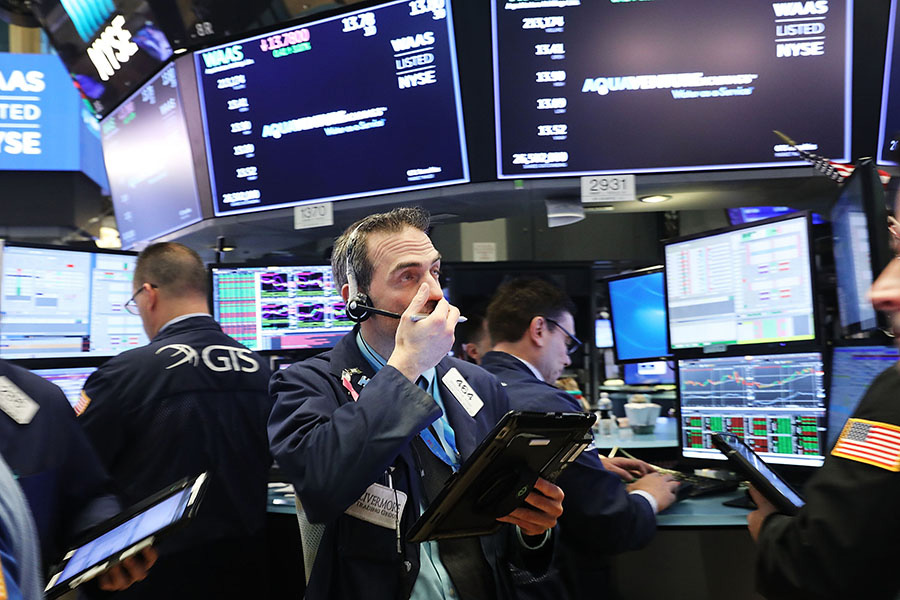The half that began with "melt-up" euphoria ended with melt-down fear.
Investors breezed into 2018 expecting to pick up easy returns from steadily rising asset prices. Instead, they're nursing losses on bets that had delivered the biggest gains from a decade's worth of buoyant liquidity.
Emerging economies began the year as a market darling only to be toppled by a surge in the dollar and rising political risks. A brewing trade war has dashed expectations synchronized global growth would keep pumping up equities. China, long seen as the world's growth engine, slipped into a bear market.
The sea change stemmed more or less from the snap stock sell-off of early February, which was blamed on
traders unwinding huge short-volatility positions. Since then, markets have become more vulnerable to mounting political risks as investors caught unawares grow increasingly risk-averse.
"We've gone from an extreme of market psychology where all risks could be ignored to one that is hypersensitive," said James Athey, a senior investment manager at Aberdeen Standard Investments in London. "The February turn, when equities suddenly started selling off, that was the moment when shock waves rippled across financial markets and people woke up to a different world."
Developing-nation stocks are the biggest losers of the year so far, handing investors a loss of 6.8% as of Friday, once dividend payments have been taken into account. Emerging-market and euro-denominated debt are close runners-up, with losses of more than 4%. Oil was the standout winner as investors bet on tightening supply against the backdrop of the collapse of Venezuelan output and the increased isolation of Iran.
The turbulent first half may be just the beginning, as markets adjust to central banks paring stimulus that had propped up asset prices with liquidity and low rates for the past decade.
Anyone trying to gauge how markets will fare in the second half of the year may want to start with the outlook for the dollar. Mr. Athey, who foresaw the greenback's ascent, pinpoints the
currency as the biggest contributor to the decline in global financial health this quarter. The options market suggests the U.S. currency's reign will prevail in the next three months after notching its first quarterly gain since the end of 2016.
"Six months ago you had a lot of people with a high conviction that global growth would be spectacular in 2018," said Max Kettner, a cross-asset strategist at Commerzbank in London. "Much of that had to do with two themes: global synchronized growth and a flat dollar. They both turned out to be completely wrong."
The volte-face was captured in a Goldman Sachs Group Inc. barometer of risk appetite which slumped to an 11-month low in late June after signaling the most accommodative investment environment since 2000 in January.
Demand for price protection against large swings in major global equities and currencies is approaching its highest level since March this week, according to the Bank of America Merrill Lynch hedging skew index.
The market's growth expectations are still too high as trade tensions rattle the world's two biggest economies, creating ample room for more negative surprises in the next few months, Mr. Kettner said. Emerging markets in particular need a "cross-correlated wash-out" before they will become attractive again, he said.
"It's no longer an environment where you can just say, 'I'm buying an ETF, see you in six months,"' Mr. Kettner said.
(More: Advisers take a short-term view of trade skirmishes)







